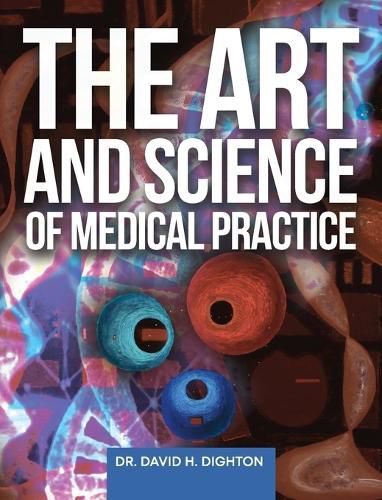The Art and Science of Medical Practice
David H Dighton

The Art and Science of Medical Practice
David H Dighton
The medical students and doctors who read this book will learn many practical tips about how to practise medicine, judged as successful by patients. These tips result from 55-years of medical practice experience, using both its art and science; its judgement tools, methods and creative processes, rather than anonymous, check-box ticking algorithmic processing. Everyday medical practices save lives and reduce suffering, but with problematic cases both independent thought and creativity are often necessary.
Scientific medicine has provided us with many indispensable tools, but it is the art of medicine that defines how best to use them to fulfil our patient's needs.
Applying the science of medicine can be as effective as a bowl of cold soup served to stranded, freezing and frightened mountaineers. Even though it contains every ingredient necessary to sustain life, the soup alone might not uplift their spirits enough for the journey ahead. For that, knowing how to handle people is the essential art. Only the art of medical practice serves this purpose for patients.
No matter how much science we apply to a clinical situation, someone, sometime, will need to draw a line between what is 'normal' and 'abnormal'; between what is acceptable and the unacceptable, and between what is clinically advisable, risky or ineffective. Science has provided doctors with the means to draw such lines of distinction, but not the ability to know where best to draw them for each patient. That remains a medical art.
Some controversial medical topics discussed are:
The relative importance of scientific medicine and the art of medicine. The challenge of cultural diversity and our personal biases. Why the poor suffer five times more disease than the wealthy. The statistical paradox, informed consent and patient agreement. The merit of doctors and nurses performing in 'attached' and 'detached' modes. The relative merits of medical training rather the education of experience. The sovereignty of medical learning, ability, and practice and the duties it imposes. Why doctors in the UK are leaving the medical profession ('Drexit')?
The contents will be most pertinent to all medical students, doctors, nurses, paramedics, and anyone unfortunate enough to be a patient. It could also be pertinent to those still at school, considering a career in medicine.
Only those with a strong interest in their fellow man should attempt to practise the art of medicine. They will need to be brave enough, and irreverent enough of regulatory bureaucracy, to practise it in the future. The reason is simple. Medical science alone is used to define the regulatory high ground. While the progressive impenetrability and detached nature of scientific knowledge helps to grow its mystique, the art of medicine is being simultaneously derided and undervalued. This is because the art of medical practice is impossible to regulate and there are no means to measure its indispensable merits.
This item is not currently in-stock. It can be ordered online and is expected to ship in approx 2 weeks
Our stock data is updated periodically, and availability may change throughout the day for in-demand items. Please call the relevant shop for the most current stock information. Prices are subject to change without notice.
Sign in or become a Readings Member to add this title to a wishlist.


